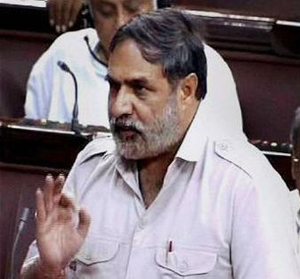New Delhi, Dec 8: A day after the National Security Advisors (NSAs) of India and Pakistan met in Thailand, the Congress on Monday accused the Centre of making a “fundamental departure” in New Delhi’s position on Indo-Pak ties.
The party also sought a clarification on the matter from Prime Minister Narendra Modi.
Raising the issue in the Rajya Sabha, Deputy Leader of Congress in the Upper House Anand Sharma demanded the prime minister to clarify on India's engagement with Pakistan and take Parliament and the Opposition into confidence on the direction and the roadmap that the government has in mind.
“I have given a notice under Rule 267 so that the prime minister and his government can inform the House about the developments and the reasons which have made the government to make a fundamental departure from the position as was conveyed to this august House in the last session with regard to India’s engagement with Pakistan,” he said.
With Modi meeting his Pakistani counterpart on the sidelines of the Paris Climate Summit last week, Sharma said, “We did expect that he would take Parliament and leaders of Opposition into confidence about the direction and the roadmap that the government has in mind.”
Sharma said, since External Affairs Minister Sushma Swaraj is going to Islamabad, we wanted to know what understanding was reached between Prime Minister Modi and Pakistan Prime Minister Nawaz Sharif.
Sharma also said he had no objection on the meeting between the NSAs. The Congress leader said the fact that foreign secretaries have accompanied the NSAs means that the scope and the agenda has been expanded and wanted the government to explain before Parliament the developments.
JD(U) MP K C Tyagi, too, demanded the government to declare its position on Kashmir.
Responding to him, Minister of State for Parliamentary Affairs Mukhtar Abbas Naqvi said the external affairs minister will make a statement on December 10.





Comments
Add new comment